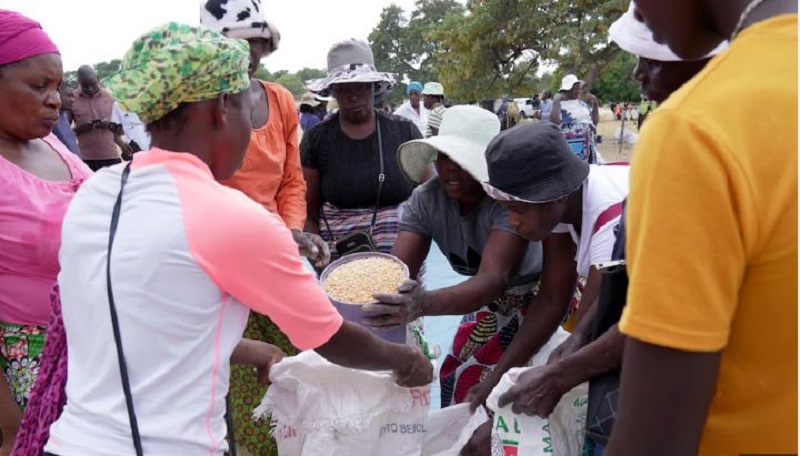 English
English

Tens of millions are grappling with hunger, malnutrition, and water shortages across southern Africa as extreme drought and floods ravage the region. Read further on Dynamite News:

Johannesburg: Tens of millions are grappling with hunger, malnutrition, and water shortages across southern Africa as extreme drought and floods ravage the region, CNN reported.
Oxfam, an aid group, issued a dire warning, highlighting that more than 24 million people are affected, with experts fearing the situation could escalate into an "unimaginable humanitarian crisis."
The prevailing drought is intensified by El Nino, a natural climate phenomenon originating in the Pacific Ocean. El Nino brings high temperatures and reduced rainfall to southern Africa, exacerbating dry conditions. The resultant parched ground further increases the risk of flooding when precipitation does occur.
El Nino compounds the effects of the broader climate crisis, primarily driven by fossil fuel emissions. This crisis leads to more frequent and severe weather events, including droughts and floods, in southern Africa, identified by Oxfam as a "climate disaster hotspot," according to CNN.
As southern Africa enters its traditional dry season, nations such as Angola, Botswana, the Democratic Republic of Congo, Malawi, Mozambique, Namibia, Zambia, and Zimbabwe are already reeling from prolonged dry spells.
Recent reports from the United Nations Office for the Coordination of Humanitarian Affairs reveal that rainfall levels from late January to February were the lowest in at least 40 years.
Additionally, central parts of the region experienced the driest February in over a century, according to the United States Agency for International Development's Famine Early Warning Systems Network.
The impact on agriculture has been devastating. Extreme drought has damaged over 2 million hectares of crops in Zambia, Malawi, and central Mozambique, exacerbating food insecurity. Malawi's president declared a state of disaster across most of the country for the fourth consecutive year due to extreme weather conditions. The World Food Programme highlighted the compounding effects of El Nino on the climate crisis in Malawi.
Despite contributing minimally to global emissions, southern Africa remains highly vulnerable to climate change. In Mozambique, where emissions are negligible, 3 million people face hunger, with the capital, Maputo, experiencing catastrophic floods in March.
Teresa Anderson, ActionAid's International Climate Justice Lead, condemned the injustice, emphasising that impoverished countries like Mozambique bear the brunt of a crisis they did little to cause. She urged wealthy polluting nations to take responsibility and provide climate finance to aid vulnerable communities.
Oxfam's southern Africa program director, Machinda Marongwe, noted the urgency of the situation, urging donors to promptly release resources to avert an escalating humanitarian catastrophe.
"With all these countries facing multiple crises simultaneously, the urgency cannot be overstated," Marongwe said.
Oxfam's southern Africa program director, Machinda Marongwe, also said that the region is "in crisis" and appealed the donors to "immediately release resources" to prevent the spiral into an "unimaginable humanitarian situation, CNN reported. (ANI)
No related posts found.